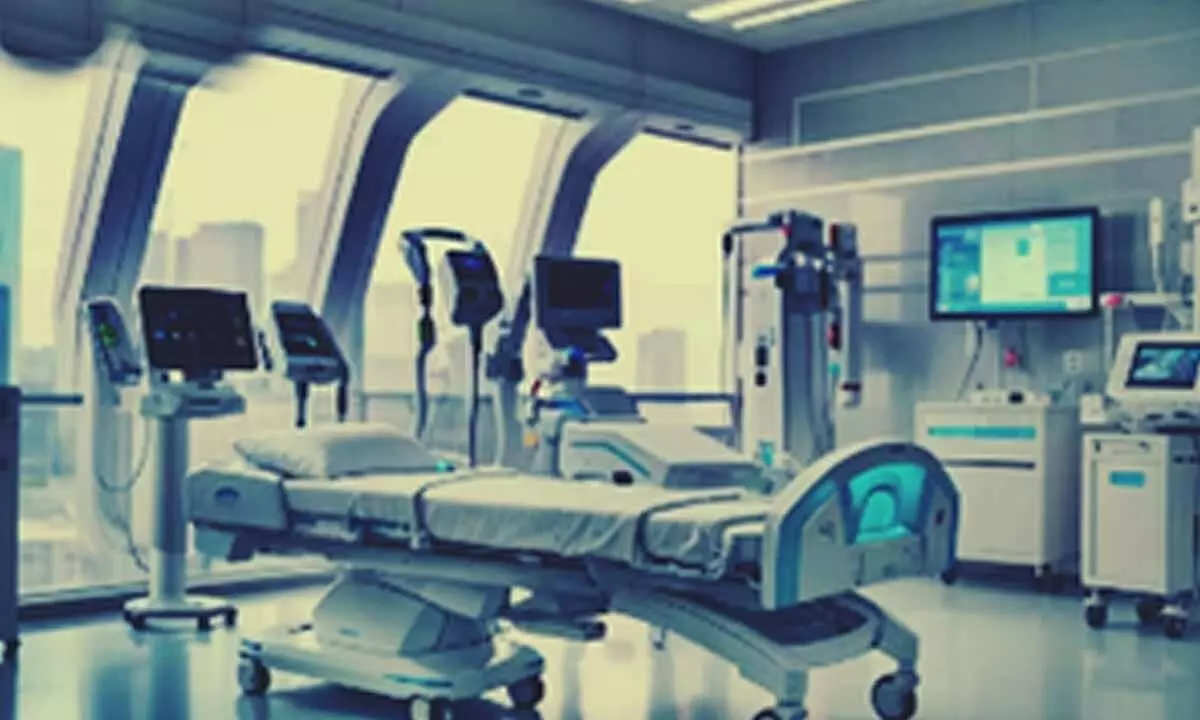Union Budget: AiMeD seeks 15 pc hike in custom duty on medical devices
Share :

The Association of Indian Medical Device Industry (AiMeD) on Wednesday urged the government to make a strategic hike in customs duty on medical devices “to a nominal 10-15 per cent.”
New Delhi: The Association of Indian Medical Device Industry (AiMeD) on Wednesday urged the government to make a strategic hike in customs duty on medical devices “to a nominal 10-15 per cent.”
In its pre-budget memorandum, submitted to the Ministry of Finance, Union Health and Family Welfare Minister JP Nadda, Secretary Apurva Chandra; and Arunish Chawla, Secretary, Department of Pharmacy, the industry body urged to increase the customs duty from the current 7.5 per cent.
“This will foster a more balanced trade environment, encouraging domestic manufacturing and reducing reliance on imports, which currently still constitutes a staggering 70 per cent of the sector,” said Rajiv Nath, Forum Coordinator, AiMeD.
“The imports of medical devices are consistently over Rs 61,000 crore for the last three years and regretfully this year, increased by 13 per cent to Rs 69,000 crore,” he added.
A significant concern flagged by AiMeD in the memorandum is the prevailing inverted duty structure. To address this, AiMeD proposed the implementation of a 5 per cent health cess on custom duty for the remaining medical devices as this was earlier applied to a limonite’s medical devices, and this health cess was used to fund resources for Ayushman Bharat.
“This correction is expected to harmonise the duty structure, making it more conducive for local manufacturers to thrive and be competitive globally and locally,” Nath said.
Another pivotal aspect highlighted by AiMeD is the necessity for trade margin capping.
“By monitoring the Maximum Retail Price (MRP) of imports, the government will curb the excessive mark-ups often seen in the market. This measure will make medical devices more affordable and accessible to the Indian populace, ultimately benefiting public health as consumers are affected not by import duty protection as much as by artificially inflated MRP of medical devices,” he said.
Further, Nath said that the Union Budget for FY 2024-25 must also announce income tax benefits specifically tailored for capital expenditure (CAPEX) and research and development (R&D) investments within the medical devices sector.
“Such fiscal incentives are crucial for fostering innovation, enhancing production capabilities, and propelling India towards self-reliance in medical technology,” he said.
Nath also urged the government to raise basic customs duty from 0-7.5 per cent to 15-20 per cent for non-Information Technology Agreement-1 devices, encourage quality production and exports, and should also remove input tax credit for Integrated Goods and Services Tax (IGST) on items with zero import duty to prevent unfair advantages over domestic producers.
He said that the Centre must halt the import of used or old medical devices, ensuring safety, environmental protection, and domestic industry growth, and should introduce a Performance Linked Incentive scheme to promote value-added production for high-import products.










